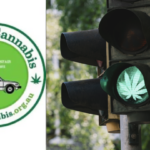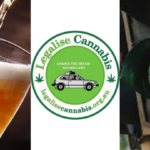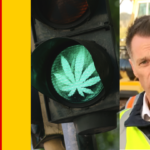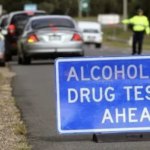Victorian Medicinal Cannabis Drivers to No Longer Face Automatic Loss of Licence, But NSW Continues Zero Tolerance

As of March next year, Victorians who use medicinal cannabis will no longer face automatic loss of licence after testing positive to the illegal practice of driving with any presence of the psychoactive component of cannabis, or THC, in their system, as magistrates will have the discretion to allow them to avoid the penalty if they have a valid prescription.
The Turnbull government legalised the production and distribution of medicinal cannabis, which came into effect in October 2016. However, up until now all states and territories, besides Tasmania, had continued to apply their drug driving laws to legal cannabis medicine and had consistently resisted reform attempts, despite their regimes only testing for drug presence and not impairment.
The Andrews government finally agreed to address this issue in February 2023 and promised it would be resolved by the end of this year, after Legalise Cannabis Victoria MLC David Ettershank introduced a bill to provide a medical cannabis driving defence that same month. And in October last year, a month after Jacinta Allan became premier, laws were passed to facilitate cannabis driving research.
Yet, on Allan announcing that Swinburne University would run the closed-circuit driving trial in May, it became apparent that its findings won’t be tabled until 2026, so Ettershank moved a motion seeking an interim solution, which saw the Parson’s inquiry established to solve this issue, and it suggested in late October that the court’s should be provided with this discretion in the meantime.
And this lead to Ettershank successfully raising an amendment to an omnibus roads and road safety bill in the upper house, which had already passed the lower chamber, and it provided that as of next March, magistrates will have that discretion.
So, while Victorian motorists who are prescribed cannabis medicine will be sighing with great relief, recent court decisions in NSW have meant that medical cannabis users are facing a tougher drug driving regime than ever before, as these rulings have erased any room for them to put forward any legitimate excuse.
Backdoor drug policing
Unlike roadside breath testing (RBT), which ascertains levels of alcohol in the blood of a driver and hence, whether they are drunk, roadside drug testing (RDT) involves a device that tests saliva for the mere presence of a limited number of drugs, and this means that a driver doesn’t have to be high in order to fall foul of the law, as the slightest trace can turn up a positive reading.
Victoria was the first state to adopt this approach in 2004, when it commenced testing for THC, MDMA and amphetamines. NSW followed with the same regime in 2007, with the addition of cocaine as a fourth drug in 2018. And prescribed cannabis medicine has continued to be penalised in both states, despite all other prescription medicines being completely left off the list.
The campaign to change the regime in both states was strong even before lawful cannabis medicine, as unlike random breath testing for alcohol, roadside drug testing can result in licence disqualification and conviction over the presence of drugs taken and having worn off long before testing. And a further issue with cannabis is that the body can store traces of THC for weeks on end.
No defence whatsoever
Legalise Cannabis NSW MLC Jeremy Buckingham has the Road Transport Amendment (Medicinal Cannabis) Bill 2023 before parliament, which proposes to enact the medicinal cannabis driving defence. Yet, its second reading speech took place in August 2023, while the NSW Greens have made several attempts to enact the defence prior to this, with all of these bills having been rejected.
Since giving up the gavel, former NSW Magistrate David Heilpern has been running the Drive Change campaign, which advocates for a NSW medicinal cannabis defence.
Heilpern delivered three ground breaking decisions over 2016 to 2019, in which he acquitted three different people on cannabis driving charges, as one defendant was found to have last smoked a joint nine days prior to testing, another accused had inhaled a friend’s second-hand smoke, while the third case found a woman having tested positive after using a topical cannabis cream.
But in July 2023, NSW District Court Judge Mark Buscombe found that Mina Narouz’s defence to cocaine driving, which involved mistakenly sipping another person’s sports drink and resulted in his testing positive in 2020, didn’t hold up, as in scrutinising the structure of the crime of drug driving in section 111 of the Road Transport Act 2013 (NSW), he found it to be an absolute liability offence.
Prior to this ruling, the offence of drug driving had been considered a strict liability offence, which meant the defence of honest and reasonable mistake of fact could apply to a charge in court, however the Buscombe ruling finds the crime is an absolute liability offence, meaning there are no defences or excuses open to an accused, so the prosecution doesn’t have to prove intent.
And on appeal, NSW Court of Criminal Appeal Justices Nicholas Chen, Andrew Bell and Ian Harrison confirmed the section 111 crime of drug driving is an absolute liability offence in February this year.
Sensible drug policy
Ettershank told the Guardian in October that the judicial discretion on licence disqualification was needed, as he was aware that some motorists had been turning to benzodiazepines and opiates to treat conditions, as roadside screening doesn’t test for these legally prescribed drugs, even though these substances are often much more dangerous to drive under the influence of than cannabis is.
The 31 October amendment that Ettershank successfully raised inserted new section 50(1F) into the Road Safety Act 1986 (VIC), so that the requirement to disqualify the driver licence of those found guilty of cannabis driving, contrary to section 49(1)(bb), (h) or (i) will not be a necessity, but rather the court will be able to decide on whether any disqualification should take place.
Currently, a first cannabis driving offence requires at least 6 months driver licence disqualification, while a subsequent offence triggers at least 12 months suspension.
And after these final amendments passed the lower house on 12 November, Ettershank said on a social media post, “Importantly, if a matter does go to court, it will be up to the police to prove, beyond reasonable doubt, that the driver was impaired at the time.”
“Back in August, when the government announced a medicinal cannabis driving trial, we argued the timeline was too long and that patients would be left in limbo,” he continued.
“We lobbied hard and advocated for an interim measure — and now, with the support of both major parties, it’s enshrined in Victorian law. It’s a huge step in the right direction.”







